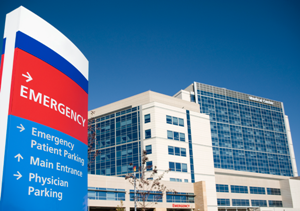Health Care Cuts Hurt All Hospitals
From Fair Share Hospitals Collaborative
A lot happened when the legislature and governor enacted a budget for New Jersey’s fiscal year that began on July 1. There were dozens of financial decisions made in the State House in Trenton that will have serious and long-lasting effects on our state’s people and businesses. One such decision was the future of the state’s Charity Care funding.
Charity Care funding is a state reimbursement to New Jersey’s hospitals for their costs to provide care to uninsured patients. In New Jersey, all hospitals are required by law to provide high-quality healthcare to all residents, no matter their ability to pay. In return, the state is obligated to reimburse hospitals for a portion of the care they provide to these uninsured individuals through funding called Charity Care.
During Trenton’s annual budgeting process, instead of sticking with the proposed plan for Charity Care funding, the Governor decided to redirect 82 percent of Charity Care funding pool to only 12 New Jersey hospitals. This leaves 59 hospitals with only 17 percent of the funding to help care for the uninsured, even though these 59 hospitals care for roughly half of all Charity Care patients in the state.
59 hospitals in New Jersey receive only 17 percent of Charity Care funding, even though these 59 hospitals care for roughly half of all Charity Care patients in the state.
With the implementation of the Affordable Care Act and New Jersey’s expansion of Medicaid – health insurance for our neediest residents – more people in our state have essential health coverage. But there are still an estimated one million New Jersey residents without health insurance and the state’s Charity Care program makes it possible for them to obtain the healthcare they need at any of the 71 hospitals in the state.
In a move that suggested an understanding of this situation, Governor Christie proposed a state budget that provided $352 million to hospitals to help offset the $570 million hospitals spent caring for the uninsured in 2014. But as tax revenues came in lower than expected, the Governor cut an additional $50 million from the Charity Care budget allocation – $25 million from state funds, which causes the state to lose an additional $25 million in federal funding.
We thank the State Legislature for restoring this $50 million cut via the budget bill that they sent to Governor Christie, but unfortunately, the governor immediately redline-vetoed that restoration and reduced the funding to $302 million. These cuts resulted in many hospitals being reimbursed less than one cent for each dollar spent on health care for the uninsured, compared with those 12 hospitals that are receiving a reimbursement of 96 cents on the dollar.
The Charity Care funding formula is unfair to patients and health care providers. People who are uninsured live in all of New Jersey’s 21 counties and towns, and not in just a few urban centers.
The Charity Care funding formula is unfair to patients and health care providers. People who are uninsured live in all of New Jersey’s 21 counties and towns, and not in just a few urban centers. And all of New Jersey’s hospitals – and not just 12 of them – are part of the state’s safety net and provide care to those in need.
Our state’s leaders shouldn’t be playing games with New Jersey’s health care system. New Jersey hospitals take pride in the care that they give to these patients, as it is part of their essential mission of caring for their local communities, but they cannot do this without funding to sustain that care. New Jersey’s public officials need to work together to fairly support all hospitals who care for those in need.
Richard A. Pitman
Richard A. Pitman is the Executive Director of the Fair Share Hospitals Collaborative and coalition of 11 New Jersey hospital systems, representing 32 New Jersey hospitals. FSHC member hospitals care for more than 8 million patients every year; train the next generation of doctors, nurses, and allied professionals in the FSHC hospitals that serve as teaching institutions; and employ nearly 49,000 people in the state and contribute $8.8 billion annually to New Jersey’s economy.

